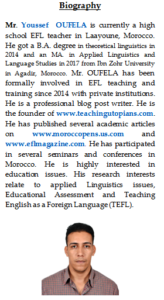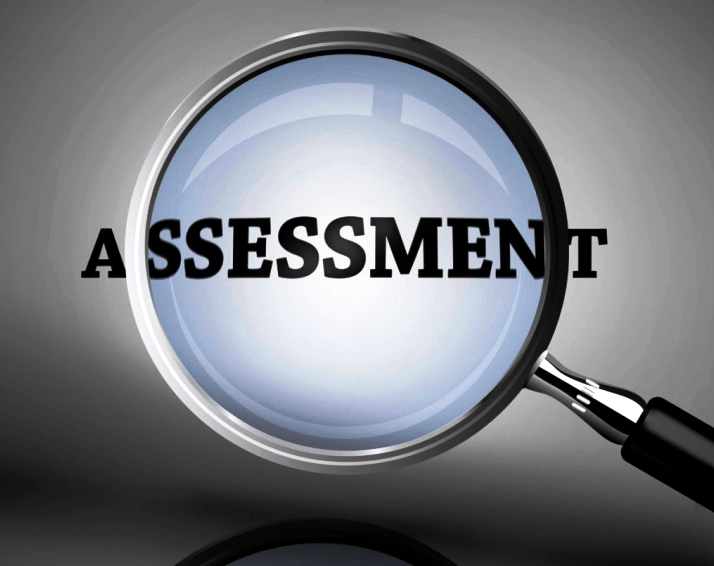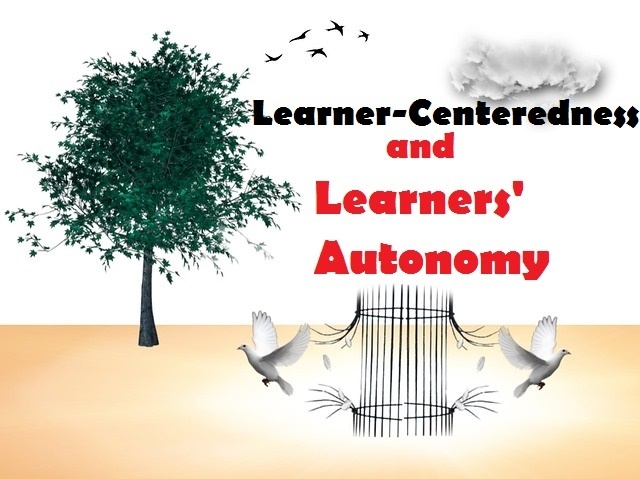Just as many processes incorporate three basic phases (planning, implementation, and evaluation), teaching is no exception. It basically involves planning, management, and assessment. The three of these play a sine qua non role in the success of any teaching-learning process. Assessment, as an area of education, has been profoundly studied by a number of researchers. Now, more than any time, there is a tremendous body of conceptual and pedagogical knowledge on its classroom applications.
At the outset, it is worth noting that this article does not replicate any research implications. Some of the ideas are not empirical and should not be taken for granted. They are merely reflections, opinions, and ideas from books. Therefore, there is no room for generalization. The ultimate purpose of this article is twofold: firstly, to draw teachers’ attention to this issue that really needs to be addressed in depth. Secondly, to call teachers to reflect on and share their assessment practices to arrive at a better understanding of how assessment should work.
I strongly agree with the American psychologist and educationalist Howard Gardner in his book The Unschooled Mind, when he said there is a clear mismatch between research and classroom practices. His theoretical perspective about intelligence is well-acknowledged among educators. He assumes that there are multiple distinct cognitive abilities, which he labels “intelligences”, that human beings possess.
For the last four decades, this theory has overly shaped educational policies and practices. Gardner’s statement of mismatch simply discloses that while educational practices should be designed in a way that accommodates all the differences, there still is a problem with respect to assessment. In other words, while teaching must vary according to learners’ needs, skills and expectations, assessment should also vary depending on learners’ styles and most importantly help them support their learning. This is pretty much conceived by, I guess, all teachers. But, to a lesser extent, it is somewhat invisible in terms of classroom practices.
To further elaborate, if students learn and are taught differently, they should be assessed differently. Based on what I have seen, I would venture a guess that there is a real problem with regard to assessment in Moroccan schools. As aforesaid, any statement, along the article, SHOULD NOT BE GENERALIZED.
I fairly remember my experience as an invigilator during the national baccalaureate exam. I remember the fright and bewilderment that appeared on the faces of young learners. It is really painful when you see a group of learners who has been victimized by the system. The latter is norm-referenced and has instilled a culture of competition and contest among learners. The direct results are sometimes, failure, exclusion, cheating, or in best cases superficial learning, which restricts real learning from taking place.
Because of conceptions that many people have on assessment, cheating seems to be justified. Some of the shared beliefs among learners are: 1) “both learning and the grade matter”. 2) “The grade matters”. 3) “The grade matters at all costs”. In all these statements, it is well-apparent that grade is always sought for. Sometimes, it happens at the expense of deep learning. When this becomes a prevalent culture among many learners, preventing cheating will be useless. Even when cheating is prevented, superficial learning will be the motive, that is to say, learning to the test. So, the quality will be disposed.
It is safe to assume that all learners come to school with “the will to learn”. Yet, this “will” is oftentimes affected by the assessment culture and practices that exist in a particular institution. By culture, I simply refer to staff’s, teachers’, and students’ conceptions and perceptions of assessment. Many individuals still perceive assessment to have a judgmental function by which success and failure are determined. Yes, part of the assessment process is administrative. Nevertheless, most of it is primarily pedagogical and should be supportive of students’ learning.
Basically, there are no phrases such as “high-achiever vs. low achiever”. Learners might differ in terms of intelligences or other cognitive skills, but all should be treated socially equal. Yes, there are differences with regards to learners’ competences and skills, and this is an accumulated result of sequences of repeated failure. Sometimes, assessment can be destructive and deleterious.
Imagine a scenario where a group of learners gets a low grade this time, got a low-grade last time and expects to get a low-grade next time. This cycle of repeated failure becomes a part of their beliefs and perception of their abilities.
People, might generally attribute personal achievements to numerous factors. In learning, there are students who attribute their achievement to ability or effort. There are students who attribute failure to effort. But the worst case is when learners attribute their failure to ability. The belief of lacking the ability (to do something),, which is confirmed by the repeated experiences of failure, can sometimes end students’ learning up.
So, PAY ATTENTION dear teachers. The rate of school dropout is increasing by the year, and one of the reasons is OUR INSTITUTIONAL NORMS AND RITUALS.
The vast implication here is that there is a need to reconsider the use of assessment. Teachers have to tap into other options to help learners. There should be a bottom-up approach to reform and teachers are a key element in this affair. In so doing, many learners will regain self-confidence, change their perceptions of their abilities, become motivated, and the rate of school dropout will dramatically decrease.
Added to this, the routine-driven instruction should be left. It is important for teachers to get out of their comfort zone. Action research can be an effective way to address and solve many pedagogical and behavioral issues within schools. Action research allows room for both personal and professional growth and can yield positive effects, along the run, on both individual teachers and school policies. So, while some teachers are striving to justly educate young learners, the hope, that this CALL will reach the rest of teachers and responsible stakeholders, stays forever.
References:
- Black, P., & Wiliam, D. (1998). Assessment and classroom learning. Assessment in Education 5 (1), 7-74.
- Gardner, H. (2006). The Development and the Education of the Mind. New York: Routledge.
- Gardner, H. (2004). The Unschooled Mind: How Children Learn and How Schools Should Teach. New York: Basic Books.
The article is ALSO published on EFLmagazine.com








